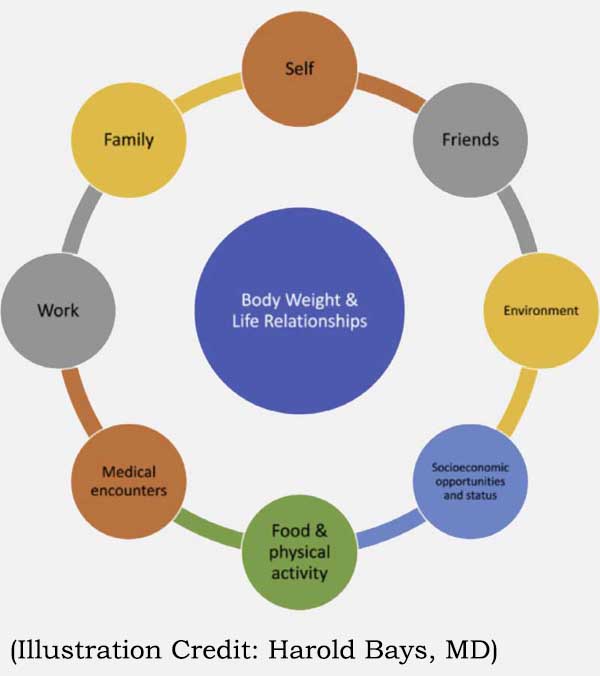 I am a practicing physician with over 30 years of clinical experience. My interest, study and research in Bowen Family Systems Theory stems from personally experiencing how challenging yet ultimately rewarding “work on self” can be within a family system. It has provided me new insight, more clarity and a new skill set that has enhanced understanding who my patients are and what they are up against. This has broadened my ability to be a resource to them towards improved health.
I am a practicing physician with over 30 years of clinical experience. My interest, study and research in Bowen Family Systems Theory stems from personally experiencing how challenging yet ultimately rewarding “work on self” can be within a family system. It has provided me new insight, more clarity and a new skill set that has enhanced understanding who my patients are and what they are up against. This has broadened my ability to be a resource to them towards improved health.
A commonly used term in medicine addressing disease risk reduction is the concept of “behavior modification.”
As physicians this concept seems so basic and obvious that we barely delve into it. From my experience and supported by the literature both from peer reviewed medical publications as well as Bowen’s contributions to Natural Systems references support the high level of complexity this “simple” concept encompasses. None the less the advice we physicians often share with patients is oversimplified by suggesting “diet and exercise” or “move more and eat less”. When looking at the statistics of health nationally and globally, the epidemic rates of obesity and diabetes, clearly this simple approach has not proven useful.
Research shows the pivotal role of behavior in well-being, physical health, longevity as well as health care costs. Some estimates suggest nearly 3/4 of all health care costs are attributable to chronic diseases resulting from unhealthy behaviors such as tobacco use, poor diet, and physical inactivity. Adherence to five key lifestyle behaviors (eliminating tobacco, healthy weight, 30 minutes of daily exercise, alcohol in moderation, and a healthy diet) reduced coronary events (i.e. heart attacks, etc.) by 62% over 16 years. Unhealthy lifestyle behaviors contribute to some 40% of mortality and are implicated in up to 2/3 of all cancers as well as the onset of obesity, diabetes, cardiovascular disease, heart attacks, and stroke. Understanding and developing the science of health behavior change and maintenance is critical to prolonging both length and quality of life.
Behavior modification according to Bowen theory involves a focus on increasing differentiation of self (“work on self”), which refers to the ability to maintain emotional autonomy while staying connected to others (especially challenging during periods of heightened tension and intensity). The work to increase self-awareness, self-regulation, and emotional resilience over time reduces automatic emotional reactivity, allowing more objective thinking and problem solving (more choice). “Work on self” involves increasing communication with family and important others during various levels of tension and developing strategies to manage stress and anxious reactivity based on clear life goals and values.
I describe my perspective now to patients as the relationship between my caveman brain (the foundation, largely focused on survival, avoiding discomfort, seeking comfort and pleasure, which has evolved and been transmitted through the generations over millions of years) as responsible for much of my automatic reactivity and behavior (outside of my awareness) with my executive brain capable of logic, judgement and reasoning (which has evolved over far fewer thousands of years) guiding principled actions and behaviors which support fundamental life goals and values. I reflect that I’ve learned to embrace my caveman as responsible for
many automatic behaviors that both protect and enrich my life while appreciating how unchecked can lead to unwanted changes in functioning, both physical and emotional.
With regard to weight management a specific Challenge that I pose to patients when they are interested and ready is “would it be possible for you to have no starches or sweets one day every week?” (without going into details of any particular diet that I recommend for weight loss as there are numerous well studied diets, it is my experience that simple carbohydrates are a trigger for most people). The answer is almost always yes. I ask “which day would make the most sense to you with your schedule?” A common answer is “Wednesday, right in the middle of the week”. I encourage them but warn “you won’t lose weight on Wednesday”, but use it as a day committed to your health. Do some type of physical activity that day too. Over time you will learn new skills and make better decisions the other six days without being strict. I warn them, it may not happen the first, second or third Wednesday, but your caveman will come out eventually and subconsciously whisper reasons why you should not comply that
day or simply make you forget about it by suppressing the concept and decision you made (avoiding discomfort).
I ask people two questions,
1. Is this important to you?
2. Are you capable of making this change?
The answer to both questions is usually a confident yes. The challenge I pose is to begin to observe how their caveman brain, acting outside of awareness, leads to automatic behaviors or thoughts that do not support those yes answers. This happens most often when the executive brain is relaxed or asleep. The goal is to start seeing how those automatic caveman thoughts and beliefs creep in to influence our behavior but through awareness be able to say “I see you, I hear you… but not today”.
"Work on self," reducing automatic emotional reactivity, may contribute to developing more adaptive behavior and more choice affording healthier relationships with perhaps the most important 5 F’s... family, friends, food, fitness and fun.
Bowen Family Systems Theory may well contribute to the science of health behavior change.
